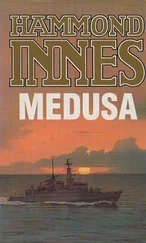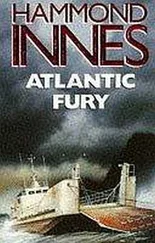Hammond Innes - The Strange Land
Здесь есть возможность читать онлайн «Hammond Innes - The Strange Land» весь текст электронной книги совершенно бесплатно (целиком полную версию без сокращений). В некоторых случаях можно слушать аудио, скачать через торрент в формате fb2 и присутствует краткое содержание. Жанр: Прочие приключения, на английском языке. Описание произведения, (предисловие) а так же отзывы посетителей доступны на портале библиотеки ЛибКат.
- Название:The Strange Land
- Автор:
- Жанр:
- Год:неизвестен
- ISBN:нет данных
- Рейтинг книги:4 / 5. Голосов: 1
-
Избранное:Добавить в избранное
- Отзывы:
-
Ваша оценка:
- 80
- 1
- 2
- 3
- 4
- 5
The Strange Land: краткое содержание, описание и аннотация
Предлагаем к чтению аннотацию, описание, краткое содержание или предисловие (зависит от того, что написал сам автор книги «The Strange Land»). Если вы не нашли необходимую информацию о книге — напишите в комментариях, мы постараемся отыскать её.
The Strange Land — читать онлайн бесплатно полную книгу (весь текст) целиком
Ниже представлен текст книги, разбитый по страницам. Система сохранения места последней прочитанной страницы, позволяет с удобством читать онлайн бесплатно книгу «The Strange Land», без необходимости каждый раз заново искать на чём Вы остановились. Поставьте закладку, и сможете в любой момент перейти на страницу, на которой закончили чтение.
Интервал:
Закладка:
‘It has to be confirmed by the Caid,’ Jan said.
‘C’est ca.’
He stared at us from the protection of his glasses and the stillness of the room seemed to crowd in on us. His hostility and the chill drabness of the office with its bare, map-lined walls had a depressing effect on me.
‘And if the Caid confirms your title, what do you intend to do about this American?’ He said ‘this American’ with undisguised contempt.
‘I understand he’s been granted a mining concession,’ Jan said.
Capitaine Legard grunted. The grunt seemed to express what he thought of people in Rabat who granted mining concessions in his territory. There was silence again, and then he said, ‘You have documents to prove your ownership of the property, monsieur?’
Jan produced once more the crumpled envelope and passed it across the desk. Legard pulled out the deeds and examined them. Then he glanced at the covering letter. He read it slowly, carefully. Then he looked up at Jan. This letter is from Marcel Duprez?’
‘Yes.’ Jan cleared his throat. ‘Perhaps you knew him, Monsieur le Capitaine?’
‘Now. But everybody has heard of him. Capitaine Marcel Duprez was one of the finest officers of les Affaires Indigenes.’ There was sudden warmth in his tone. ‘Tell me, monsieur, how was it he came to leave you this property? Are you a relative?’
Briefly Jan explained how the war had brought them together and the part Duprez had played in helping him to get information out to the British. And as he talked, I saw Legard’s face soften and relax. ‘And you were with him when he died?’ he asked. And when Jan had described the scene in that cellar in Essen, Legard nodded his head slowly. ‘He was a fine man,’ he said quietly. ‘I am sorry he died like that. He was what the men who sit at desks in Rabat call an officer of the bled — of the country. It seems that he was not an executive type but only a leader of the people. He understood the Berbers as few of us will ever understand them. If he had not been half-dead with dysentery and undergoing a cure in France, the Germans would never have captured him.’ He shrugged his shoulders and again those little explosive noises blew his lips out. He glanced at his watch and got quickly to his feet. He seemed suddenly alert and full of vigour. ‘Alors. We will go back to the house. We will have a drink and you will perhaps tell me the full story. Then I will phone mon commandant. He will be interested. He served with Duprez. He was with him when they took Foum-Skhira. Duprez told you the story of that, eh?’
Jan nodded.
‘Eh bien.’ He took a battered and dusty pill-box officer’s hat from a nail on the wall and led us out through the drifting sand to his house. Like all houses in Morocco, it was built for intense heat. The floors were tiled, the walls cold, white expanses of plaster, their severity relieved by a few hand-woven rugs. There was a gramophone and some books and a small collection of brass sugar hammers, beautifully inlaid with copper and silver. When Julie admired them, he said, ‘Ah, yes. Once Foum-Skhira was famous for its silver craftsmen.’ He turned to Jan. ‘There is an old story that your Kasbah Foum was built on the site of a smelting place — for extracting silver from ore. But — ‘ He shrugged his shoulders. ‘Like all these stories, it has come down by word of mouth only. Maybe it is true. Duprez excavated some old fire-places there and now there is this American…’
He shrugged his shoulders again and took us through into his study. There was a big desk with a field telephone on it, and the walls were lined with books. Magazines, some of them American, littered the floors. On the mantelpiece were some family photographs framed in silver and above it a delightful oil painting of a Paris boulevard. He saw me looking at it and said, ‘That one I picked up in a little gallery I know on the Left Bank. It is by a man called Valere. He is not much known yet. But I think he is good. In the other room I have another by him and also one by Briffe. But this is the one I like ‘best. It is a great pleasure to sit here at my desk and look at Paris, eh? I am a Parisian, you see.’ He laughed and then turned to one of the bookshelves. ‘Regardez, monsieur.’ He pointed to a beautifully bound collection of volumes, all on art. ‘I like to look at the works of the great painters, even if I can never afford to own one. I like pictures.’ He turned abruptly away, as though he had revealed too much of himself. ‘Alors, mademoiselle. Qu’est ce que vous voulez boiret Vermouth? Cognac? I have a good cognac that I have sent out to me from France.’
‘I’d like a cognac then,’ Julie said. He pulled up a chair for her and then shouted for his Berber servant, who came and poured paraffin on the pile of wood in the grate so that it went up with a roar as he lit it. Legard poured us our drinks. ‘Sante!’
‘Sante!’
The fire blazed with heat. The room was suddenly warm and friendly.
‘What is the best way for me to contact the Caid?’ Jan asked.
‘Ah, that is a little difficult, monsieur. I would take you myself, but…’ He shrugged his shoulders. ‘It is as I have said — you come at a bad time. I cannot leave the Post until the food trucks arrive. I have two trucks bringing food here to these people, and they have both broken down.’ He made rude, angry noises to himself. ‘Our transport is all from the war. It works, but it needs servicing.’ He began to cough. ‘Like me,’ he said as he recovered, and he grinned at us sardonically. ‘The trouble is that everything — even the wood for the fire — has to come across the Atlas from Marrakech.’
‘Could you provide a guide then?’ Jan said. ‘I have to see Caid Hassan. It’s urgent.’
Legard looked at him, frowning. ‘You have waited ten years, monsieur. What is the hurry?’ And when Jan didn’t answer, he smiled and said, ‘Ah, it is the American that is worrying you, eh? Well, he is worrying me, also.’ He leaned quickly forward. ‘Things were difficult enough here before. The date crop failed. For two years now we have what is called the Marlatt scale pest here in the palmerie. We have sprayed from the air at the time when the insect comes out to moult, but it is no good.’ He shrugged his shoulders. ‘Then this fool arrives, paying three Arabs incredible wages to run his abominable machines. I asked him to clear the rock by hand with local labour. He refused. He did not seem to understand that the people here needed the money.’
‘His Arabs have left him,’ Julie said.
‘Yes, yes, I know.’ He had risen and was pacing up and down excitedly. ‘They departed early this morning.’ He stopped and stared at us. ‘But do you know why? Does the American say why they left?’
‘He said they left to get stores,’ I told him.
‘Pff! You do not send three indigenes to get stores when one would do.’
‘Maybe they were told to go,’ I suggested.
‘Who by?’
‘Isn’t the Caid’s son, Ali, here in Foum-Skhira?’
He looked at me hard. ‘How did you know that, monsieur?’
I told him then about the visit we had had from Kostos.
‘Ah, oui. That man Kostos!’ He resumed his pacing. ‘Merde!’ The word burst out of him with explosive force. ‘Everything goes wrong this year.’ He swung round on his heels so that he faced me. ‘Did you see the souk when you came in and the road up the mountain?
First the dates and then the rain. And now Ali is here.’ He started to cough again and winced, pressing his hand against his belly. He leaned on the desk for a moment and then walked slowly round to his chair, his body bent, and slumped into it. ‘Eh bien,’ he murmured, ‘my relief will arrive soon.’
‘You’re not well,’ Julie said.
Читать дальшеИнтервал:
Закладка:
Похожие книги на «The Strange Land»
Представляем Вашему вниманию похожие книги на «The Strange Land» списком для выбора. Мы отобрали схожую по названию и смыслу литературу в надежде предоставить читателям больше вариантов отыскать новые, интересные, ещё непрочитанные произведения.
Обсуждение, отзывы о книге «The Strange Land» и просто собственные мнения читателей. Оставьте ваши комментарии, напишите, что Вы думаете о произведении, его смысле или главных героях. Укажите что конкретно понравилось, а что нет, и почему Вы так считаете.












